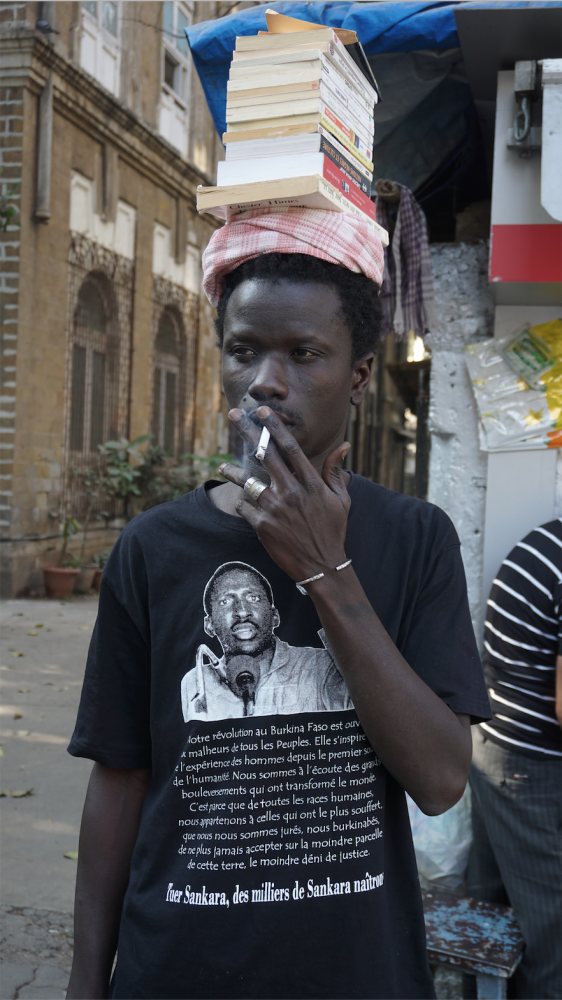Artists
Hamedine Kane
Hamedine Kane (born in Ksar, Mauritania; lives in Brussels, Belgium, and in Dakar, Senegal) uses words and images to highlight the notions of exile, wandering, and movement. His intimate videos make migrants visible and audible and forge narratives about how they inhabit the world. Kane encourages encounter, welcome, and kindness by casting a poetic gaze at migrants’ resiliency. With his interest in the feelings, animosities, desires, loves, and conflicts that characterize how people relate to each other, he proposes to replace political time with living time.
- Born
- Ksar, Mauritania
- Countries / Nations
- Mauritania / Belgium + Senegal
- Lives
- Brussels, Belgium, and Dakar, Senegal

Works

Ayesha Hameed and Hamedine Kane, In the Shadow of Our Ghosts / À l’ombre de nos fantômes, 2018, video still. Courtesy of the artists

Ayesha Hameed and Hamedine Kane, In the Shadow of Our Ghosts / À l’ombre de nos fantômes, 2018, video still. Courtesy of the artists
Wet Futures
Produced jointly by Hameed and Kane, the video In the Shadow of Our Ghosts / À l’ombre de nos fantômes features a person walking alone in deserts, along city streets, or by the water’s edge; the person talks with his shadow, the only companion in his wanderings. The images of this solitary, anonymous migrant trudging through the Sahelian landscape are accompanied by the sounds of his steps, the whistling wind, and the echo of waves breaking on a beach. A second, overlapping video shows the ocean—the ocean that welcomes surfers, the ocean on which the mirage of a ship takes shape in the distance, the ocean that throws onto its shores the remains of what it has taken. In the Shadow of Our Ghosts / À l’ombre de nos fantômes relates the tragic story of 11 migrant men found lifeless on board a ghost boat swept by the wind to the southeast coast of Barbados and discovered on April 29, 2006, more than four months after they left Cape Verde, Africa. Their bodies, desiccated by the salt air and burned by the sun, embody the sense of mourning for the innocent idea of a passive, even benevolent, ocean. Like migratory policies and the borders that they establish, the ocean devours thousands of anonymous lives, as it always has. The work establishes poignant connections among our conceptions of nature and violence, the waves of migration in the news, and the traumatic history of the trade in Black people over time and through space.